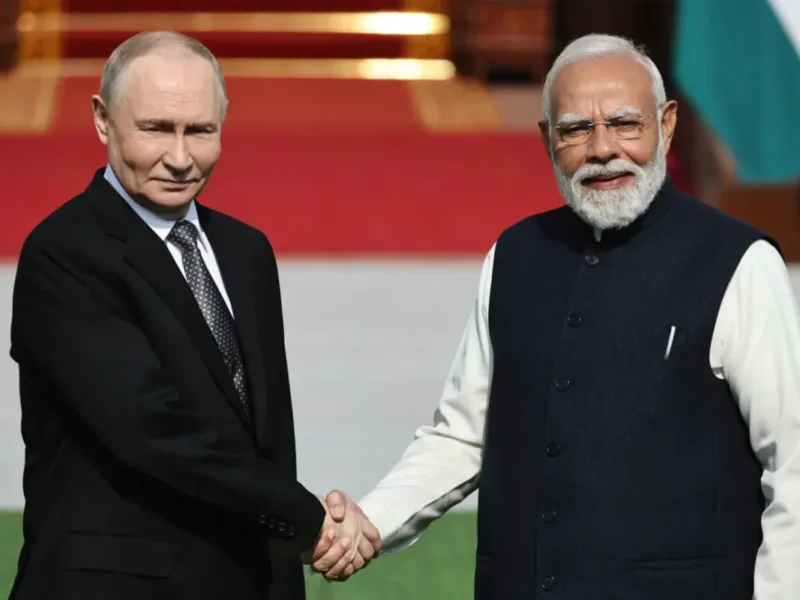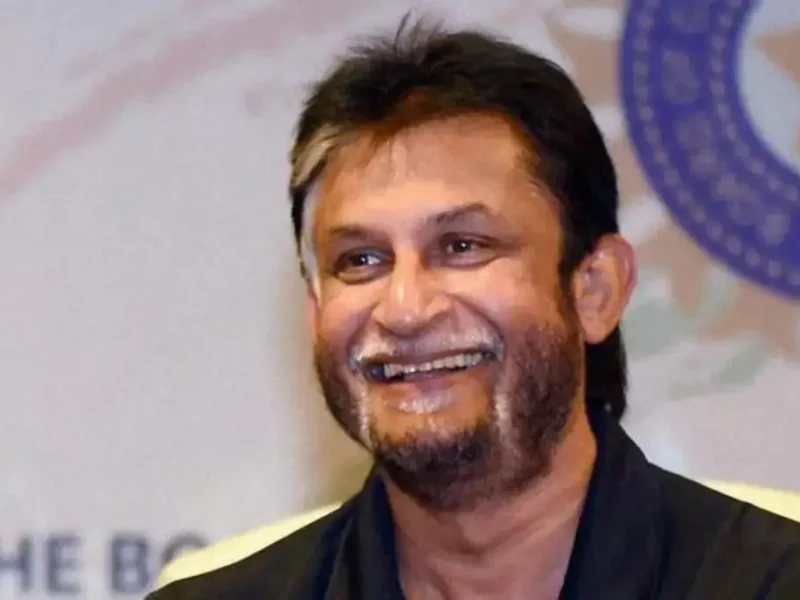
SAASCR Honors 10 Indian American Scientists for Their Outstanding Cancer Research
The Society of Asian American Scientists in Cancer Research honored 10 Indian Americans for their cancer research. Pictured (left to right): Upper panel (left to right) Dr. Zaver M. Bhujwalla; Dr. Pankaj K. Singh; Dr. Neil Bhowmick; Dr. Rajvir Dahiya (president, SAASRC); Dr. Dharampal Chauhan (secretary, SAASCR); Dr. Anand Srivastava; and Lower panel (left to right) Dr. Neeraj Saxena; Dr. Kaustubh Datta; Dr. Bhagavatula Moorthy; Dr. Nagi Kumar; Dr. Parameswaran Hari; and Dr. Arun Sreekumar. (photo provided)
India-West Staff Reporter
The Society of Asian American Scientists in Cancer Research April 11 announced that it has honored 10 Indian American scientists for their outstanding cancer research.
Dr. Rajvir Dahiya, professor emeritus at U.C. San Francisco’s School of Medicine and president of SAASCR, presented awards to these scientists April 11 during the American Association for Cancer Research annual meeting, according to the news release.
The awardees were Drs. Zaver M. Bhujwalla, Pankaj K. Singh, Neil Bhowmick, Anand Srivastava, Neeraj Saxena, Kaustubh Datta, Bhagavatula Moorthy, Nagi Kumar, Parameswaran Hari and Arun Sreekumar.
Bhujwalla is the William R. Brody Professor in the Russell H. Morgan Department of Radiology and Radiological Science of the Johns Hopkins University School of Medicine.
She serves as the vice-chair of research and is the inaugural director of the Division of Cancer Imaging Research, in the Department of Radiology.
She received her B.Sc. in Physics from St. Xavier’s College at the University of Bombay. She then completed her M.Sc. in biophysics from the Cancer Research Institute, and a Diploma in Radiological Physics from BARC. She received a J.N. Tata scholarship to complete her M.Sc. and Ph.D. in radiation biology at the University of London, following which she was recruited as a postdoctoral fellow to Johns Hopkins University School of Medicine.
Singh is currently a professor at the Eppley Institute for Research in Cancer and a co-leader for the Cancer Biology Program at Fred and Pamela Buffett Cancer Center at the University of Nebraska Medical Center.
Singh completed his undergraduate education from Meerut College of Ch. Charan Singh University and completed his master’s degree in Life Sciences from the Jawaharlal Nehru University at New Delhi, India. He joined the University of Nebraska for his Ph.D. training in cancer biology to work on pancreatic cancer signaling networks. He underwent postdoctoral training at the Salk Institute in San Diego, where he worked on the mechanisms of cellular homeostasis via signaling cross-talk of cell growth and senescence pathways.
Bhowmick is a professor of medicine at Cedars-Sinai Medical Center and University of California Los Angeles. He is also the director of the Cancer Biology Program at Cedars-Sinai Cancer Institute.
The central hypothesis of the work in the Bhowmick lab is that alteration of stromal-epithelia communication is not merely coincident with cancer progression but can in fact be a causative mechanism for tumorigenesis and therapeutic resistance.
Srivastava has been associated with leading universities and research institutes in the U.S. He held faculty positions at leading universities and research institutes such as University of California San Diego Medical School, University of California Irvine Medical College, Salk Research Institute in San Diego, Burnham Institute for Medical Research in San Diego, University of California, Los Angeles. He presently holds positions in scientific advisory boards of several institutions like Hemgen Inc., Celebration Inc.
Srivastava’s expertise and scientific achievements were recognized by many scientific awards/ fellowships.
Presently, he is the chairman of the Global Institute of Stem Cell therapy and Research, USA. Under his leadership, GIOSTAR is opening stem cell therapy and research centers globally that are using the stem cell therapy to treat ailments like cancer and other degenerative diseases.
Sreekumar is the Charles C Bell Jr. Endowed Professor of Cell Biology and Director of Center for Metabolism and Experimental Therapeutics, co-leader of the Cancer Biology program at the Dan L Duncan Comprehensive Cancer Center at the Baylor College of Medicine.
He completed his Ph.D. from Indian Institute of Science, Bangalore in 2000 and his post-doctoral training in Integrative Analysis of Cancer-associated OMICS data from the Michigan Center for Translational Pathology within the Department of Pathology at the University of Michigan, School of Medicine.
Saxena is a program director in the Early Detection Research Group of the Division of Cancer Prevention at the National Cancer Institute-NIH.
Saxena coordinates the Etiologic and Early Marker Studies Program in the Prostate, Lung, Colorectal and Ovarian Cancer Screening Trial, as well as manages a grant portfolio in early detection research.
Saxena’s research focused on studying role and importance of adipocytokines and their cross-talk-signaling in chronic liver diseases including non-alcoholic fatty liver disease, non-alcoholic steatohepatitis and liver and breast carcinogenesis.
Datta is an expert in prostate cancer research. He is known at the national and international level for his research and is considered one of the leaders in prostate cancer research at the University of Nebraska Medical Center, Omaha.
Datta received his Ph.D. from the Indian Institute of Chemical Biology, Kolkata, India, and was trained in cancer biology in Beth Israel Deaconess Medical Center, Harvard Medical School in Boston.
Datta’s laboratory is continuously funded by both federal and private funding agencies to study the contribution of angiogenic growth factors in prostate cancer and how aggressive prostate cancer metastasizes to bone. He is currently serving as a co-leader in GU Oncology Focus Group in UNMC and actively helping the researchers and clinicians in UNMC to develop translational research projects.
Moorthy received his Ph.D. from the Indian Institute of Science, Bangalore, India. After completing his postdoctoral training at the Medical College of Wisconsin, Moorthy joined the Department of Pharmacology at Baylor College of Medicine as a research associate, and was junior faculty member at Baylor in the early 1990s.
He joined the section of neonatology in the Department of Pediatrics at Baylor in 1995. He earned tenure in 2005, and was promoted to full professor with tenure in 2011. Currently, he is director of the Neonatology Research Program at Baylor.
Kumar is the director of Cancer Chemoprevention, a tenured senior member with her primary appointment in the Cancer Epidemiology Program and secondary appointments in the Genitourinary Oncology and Breast Departments at the Moffitt Cancer Center.
She is a professor in the Department of Oncologic Sciences, University of South Florida College of Medicine in Tampa, Florida. Funded by the National Cancer Institute, she has forged collaborations with investigators in basic, population and clinical sciences nationally and internationally, and has developed a program
to accelerate agent development and biomarker validation for cancer chemoprevention at the Moffitt Cancer Center.
Hari is the Armand Quick-William Stapp Professor of Medicine and Division Chief of Hematology-Oncology at the Medical College of Wisconsin. He is internationally renowned for his work in multiple myeloma, drug development, and contributions in stem cell transplantation both through the Bone Marrow Transplant-Clinical Trials Network and through the Center of International Bone Marrow and Transplant Research.
He is now leading efforts in novel cellular therapies with development of next generation CAR-T cell treatments for blood cancers and gene therapy for hemophilia.
SAASCR is a non-profit, non-political organization with more than 5000 members. All of its members are also members of American Association for Cancer Research.



